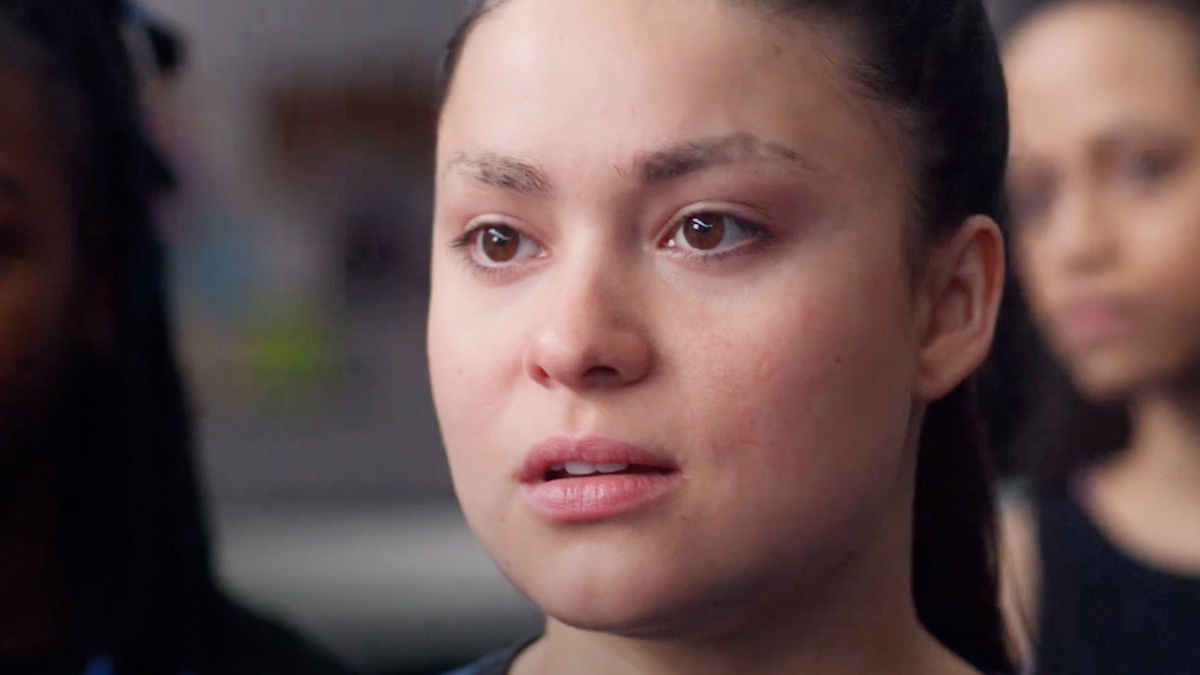‘Backspot’ Review: Devery Jacobs Shines in Queer Cheerleading Drama
4/5 handsprings

I suppose there must be a few people out there who still don’t believe that cheerleading is a real sport. Have they never actually seen a real cheer squad in action? It’s hard to say, but Backspot—with its unflinching portrayal of an ambitious high school athlete—should put any lingering doubts to rest.
Backspot, D.W. Waterson’s directorial debut, tells the story of Riley (Devery Jacobs), who dreams of earning a spot on the elite cheer squad the Thunderhawks. When she and her girlfriend Amanda (Kudakwashe Rutendo) both make it onto the team, they’re elated.
But right off the bat, something doesn’t seem right. Why, for instance, are there suddenly open spots on the team mere weeks before a major competition? Is the Thunderhawks coach, Eileen (Evan Rachel Wood), really good at her job, or is she pushing the team to dangerous lengths? As Riley and Amanda gradually realize what perfection is going to cost them, they wrestle with their love of the sport and their fraying relationship.
Admittedly, the story is a little clumsy at times. One bit character is an obvious heel, spouting all the supposedly feminist reasons why cheerleading sucks. Some scenes take several minutes to do what a moment or two could have accomplished, and the ending feels a little too tidy, given the high stakes established earlier in the film.
But the core story is compelling enough that you can forgive Backspot its missteps. Riley’s life is filled with complicated relationships—with Amanda, Elaine, her mother, the assistant coach Devon (Thomas Antony Olajide), and cheer itself—and as she tries to navigate all of them simultaneously, her mental health begins to suffer.
The most compelling parts of the movie are when we’re inside Riley’s head. When she has an anxiety attack, the film’s soundtrack rises to a frantic scramble that evokes the feeling of a body flooded with adrenaline. When she’s doing backflips and handsprings in the practice room, the camera follows her movements, creating frenetic and dizzying visuals.
The film’s depiction of cheer itself—and, really, any hyper-competitive sport—is brutal at times, but engrossing. Riley and her teammates deal with constant bruises and blisters. Injuries are alarmingly routine. But the film always embraces the cheer squad’s commitment to their sport, giving us a glimpse of all the training and technical skill that goes into executing those eye-popping stunts.
One aspect of the film that I found refreshing is that, like cheer itself, every main character exists on the fringes of society, and they’re all complex, believable people. Wood leans into Elaine’s anger-fueled perfectionism, especially when Riley makes the mistake of seeing her as a surrogate for her own troubled mother. Devon proves to be a layered character with an unexpectedly big heart, and Riley’s relationship with Amanda gives the movie fertile ground for its emotional stakes.
It’s no surprise that the film’s climax is the competition itself. Here, Waterson makes some very interesting choices, with an unexpected musical backdrop and fluid camera work. Backspot isn’t a rip off of Bring It On. It isn’t even a straightforward love letter to cheer. It’s a nuanced portrait of a young athlete who’s trying to make sense of the world around her, and the ways that the adults around her struggle with their own failings.
Have a tip we should know? [email protected]
